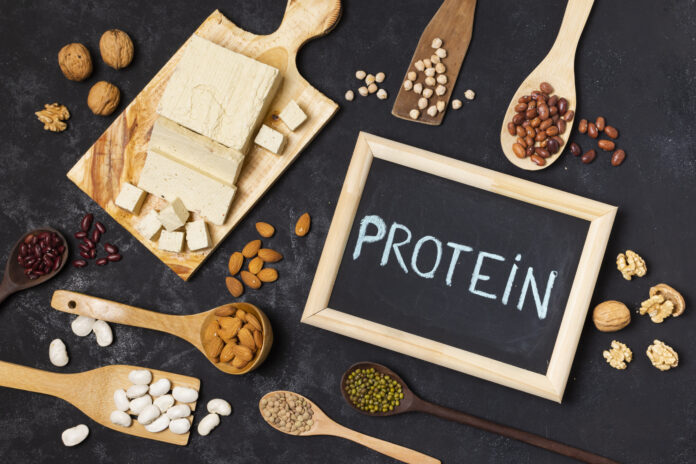Since last decade, the popularity of Plant-Based protein is increasing in America and other countries of the world. So if you are planning to incorporate Plant-Based protein in your diet, you have many companions on this journey. The International Food Council, conducted a Food and Health Survey to evaluate the popularity of plant-based protein and results showed the ascending slope for its rising demand. So a great variety of plant-based protein in the form of powders substituting milk and meat, emerges every day. The old sources like tofu, chia seed, and quinoa are also available to provide you with animal-free protein.
In this article, Online Health Point is guiding you about plant-based proteins, their sources, ways of consumption, and the science behind their usage. You will find an overview for a clear comparison between animal-based and plant-based protein with its potential health effects whether positive or negative. So let’s board the plant train to dive in!
The Nutritional Benefits of Plant-Based Protein
Considering the “complete” protein(a protein that contains all the 9 amino acids that the human body cannot produce on its own), the vegan protein is not up to the mark. Therefore, vegetarian people used to mix some plant-based protein sources to fulfill the needs of all 20 amino acids including essential and non-essential amino acids.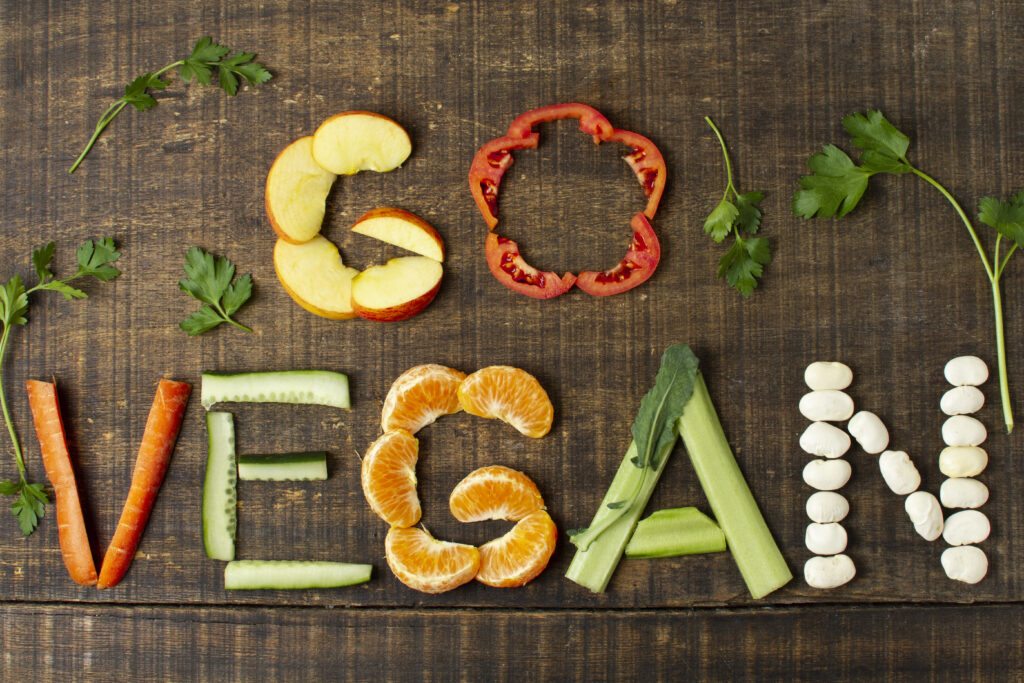 According to new research, plant-based proteins don’t need any matching or mixing because they contain all types of amino acids and the concept of amino acid deficiency in plant proteins is not supported by nutritional studies. Yes, plant proteins are fully saturated with all amino acids that are required by your body except one “vitamin B12”, this nutrient is missing in plant diet as compared to animal-based protein. So whenever you consider going completely vegan, you should add some supplements for Vitamin B12 because this nutrient is essential for proper brain functioning and the formation of red blood cells.
According to new research, plant-based proteins don’t need any matching or mixing because they contain all types of amino acids and the concept of amino acid deficiency in plant proteins is not supported by nutritional studies. Yes, plant proteins are fully saturated with all amino acids that are required by your body except one “vitamin B12”, this nutrient is missing in plant diet as compared to animal-based protein. So whenever you consider going completely vegan, you should add some supplements for Vitamin B12 because this nutrient is essential for proper brain functioning and the formation of red blood cells.
High in Fiber: Promotes Digestive Health: Plant-based proteins are rich in fiber, promoting digestive health by regulating bowel movements, preventing constipation and supporting a healthy gut microbiome. It contains both soluble and insoluble fibers to provide digestive well-being. The soluble fibers improve your blood sugar level and cholesterol level while insoluble fibers aid the stool to pass easily through the digestive tract.
Low in Saturated Fat: Supports Heart Health: Plant-based proteins are low in saturated fats which is advantageous for your heart health. It limits the risk factor of higher levels of cholesterol and offers a heart-healthy alternative to animal-based proteins. By incorporating low saturated fats and plant-based protein into your diet, you can reduce the risk of cardiovascular diseases.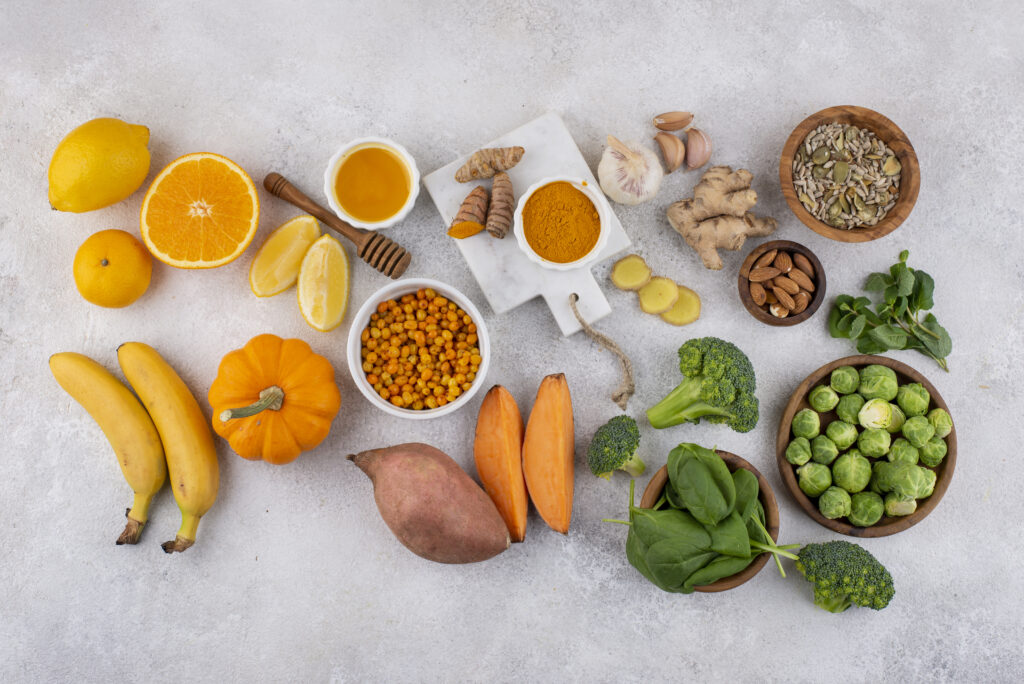 Rich in Antioxidants: Fights Free Radicals: These proteins are abundant in antioxidants, required by your body to combat the free radicals in your body. Free radicals are the oxidative stress causing unstable molecules, causing damage to cells and inflammation. You can benefit from a wide array of antioxidants such as vitamins E and C and Polyphenols, essential for neutralizing the free radicals to protect the cells and reduce the risk of chronic diseases. It plays an important role in the defense system of your body against oxidative stress agents.
Rich in Antioxidants: Fights Free Radicals: These proteins are abundant in antioxidants, required by your body to combat the free radicals in your body. Free radicals are the oxidative stress causing unstable molecules, causing damage to cells and inflammation. You can benefit from a wide array of antioxidants such as vitamins E and C and Polyphenols, essential for neutralizing the free radicals to protect the cells and reduce the risk of chronic diseases. It plays an important role in the defense system of your body against oxidative stress agents.
How to Optimize Your Plant-Based Protein Intake
Incorporate a diverse range of plant-based protein sources like beans, lentils, and tofu, tempeh, nuts and grains to optimize your plant-based protein intake. Always prioritize the protein-rich vegetables like spinach, peas and broccoli. Additionally, pairing complementary proteins such as beans and rice improves your amino acid profile. Moreover, protein rich snacks like hummus, edamame, or butternut may enhance the flavor and taste to make plant-based protein more enjoyable
Combine Complementary Proteins: Enhances Protein Quality: This practice will enhance the overall quality of protein in your diet. Beans and rice or hummus and whole wheat are complementary proteins that provide you with a wide array of amino acids when consumed together. Pairing different plant-based protein sources provides you with complete protein meals to deliver optimal nutrition and ensures the availability of all the building blocks needed by your body.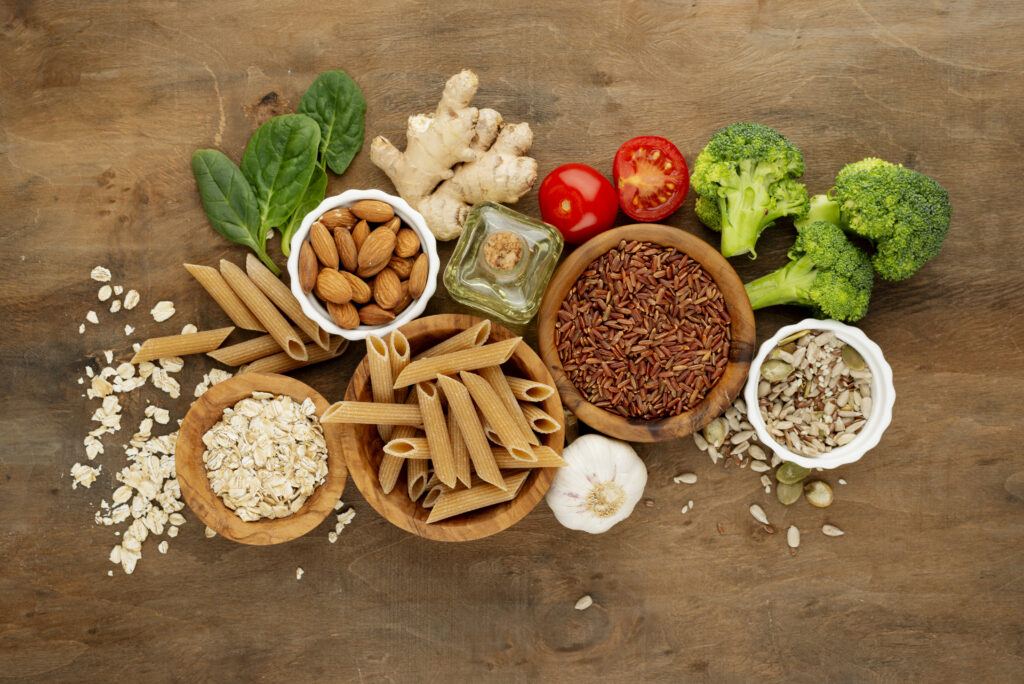 Include a Variety of Sources: Ensures Nutrient Diversity: Nutrient diversity is essential for overall health. Therefore, make a habit to include a variety of plant-based protein sources in your diet. Different plant-based protein sources contain varying profiles of antioxidants, minerals and vitamins. This wide range of plant sources contributes unique health benefits in the form of fiber, omega-3 fatty acids, phytonutrients and calcium.You can easily meet your nutritional needs by incorporating a variety of plant-based protein sources in your meals.
Include a Variety of Sources: Ensures Nutrient Diversity: Nutrient diversity is essential for overall health. Therefore, make a habit to include a variety of plant-based protein sources in your diet. Different plant-based protein sources contain varying profiles of antioxidants, minerals and vitamins. This wide range of plant sources contributes unique health benefits in the form of fiber, omega-3 fatty acids, phytonutrients and calcium.You can easily meet your nutritional needs by incorporating a variety of plant-based protein sources in your meals.
Monitor Portion Sizes: Avoid Over consumption: The practice of monitoring portion sizes of plant-based protein is an assurance to be saved from over consumption. As you know plant-based proteins have many beneficial impacts on your health but the other side of the picture also demands your attention because the excessive consumption of such proteins can lead to an imbalance in diet causing underlying health issues. So be careful about serving sizes and use measuring tools to gauge appropriate portions.
Plant-Based Protein Myths Debunked
Many plant-based protein myths often perpetuate misconceptions about their adequacy and completeness. One of them is that plant-based proteins are inferior to animal-based proteins due to a lack of essential nutrients. But we have provided you with detailed information that a well-planned plant-based diet provides you with all necessary amino acids and nutrients. Another misconception suggests that these proteins are insufficient for muscle building, yet research has proven their adequacy for proper muscle growth when combined with a balanced diet and exercise. By dispelling the myths you can embrace plant-based proteins for your health and culinary benefits.
Myth: Plant-Based Proteins Are Incomplete: Plant-based proteins indeed lack a nutrient Vitamin B12 but it doesn’t mean they are inadequate. You can combine different plant-based protein sources to obtain all essential nutrients. Such as peanut butter on whole bread and beans with rice are good examples to debunk this myth. Moreover, you can add a variety of plant foods to maintain a balanced intake of amino acids.
Myth: Plant-Based Proteins Lack Essential Nutrients: This myth is unfounded because plant-based sources offer a plethora of essential nutrients including minerals, vitamins and antioxidants. Such as soy products are great sources of complete protein and are fortified with calcium and vitamin D. Just try to incorporate a variety of plant sources in your diet, and you will receive all nutrients.
Myth: Plant-Based Proteins Are Inferior to Animal Proteins: This myth is incorrect and outdated. Like animal-based protein, plant-based protein can also provide all essential nutrients when consumed in combination. Additionally, plant-based proteins have many positive impacts on overall health being lower in saturated fats and cholesterol and higher in minerals fibers and vitamins. Research demonstrates that they promote longevity by reducing the risk factors of chronic diseases.
The Best Plant-Based Protein Sources
The best plant-based protein sources are a diverse group of nutrients and flavors. They include legumes, beans, nuts and seeds, soy products, leafy greens and quinoa. A comprehensive detail about these sources to get more benefits from them is below.
Legumes: A Nutritional Powerhouse: Legumes are a nutritional powerhouse packed with fiber, protein, vitamins and minerals. They help in weight management and digestion process. They also play a vital role in heart health. It is found in different types such as chickpeas, lentils and beans. Their exceptional vitality is an abundance of iron, folate and potassium while low levels of fats and cholesterol make it a balanced diet.
Nuts and Seeds: Packed with Protein and Healthy Fats: They contain vitamin E, magnesium and omega-3 fatty acids to improve heart health, brain function and satiety.
Soy Products: Versatile and High in Protein: These are versatile and popular options to gain complete proteins. Soy products provide you with a satisfying way to meet your protein needs.
Quinoa: A Complete Protein Source: It is a complete protein source, containing all nine essential amino acids. It is an ancient grain and is well-known for its nutritious benefits like sustaining energy and support in muscle growth and repair.
Leafy Greens: Surprising Protein Sources: Leafy greens will surprise you with their protein content. They offer a surprising amount of protein per serving along with essential minerals and vitamins.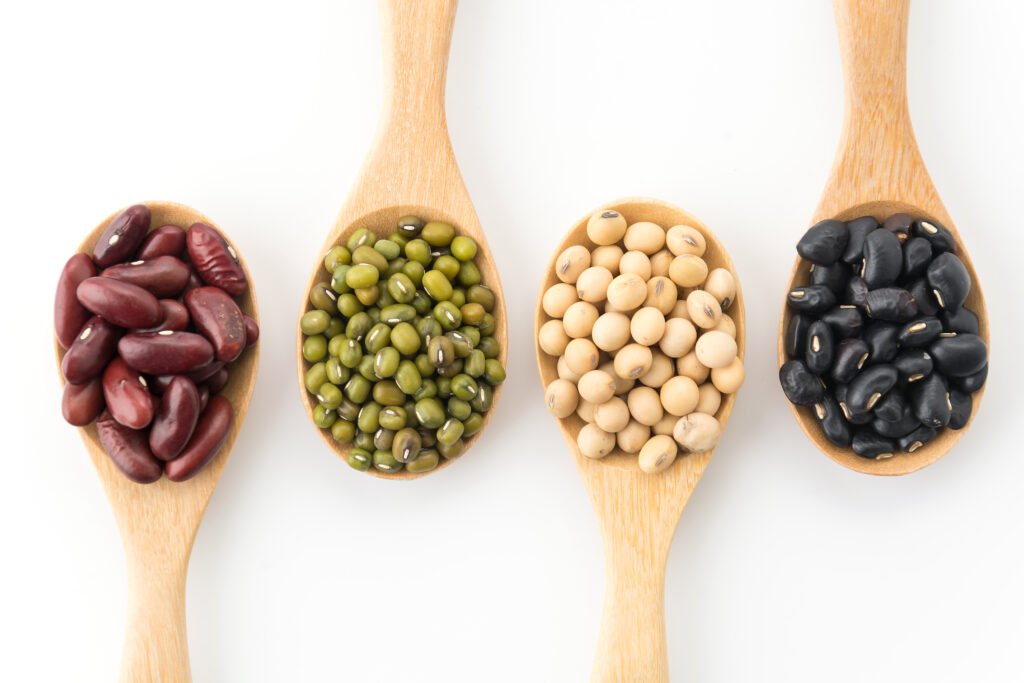 Legumes: A Nutritional Powerhouse
Legumes: A Nutritional Powerhouse
- Beans are considered best legumes being rich in fiber and protein.
- Lentils are a type of legumes containing iron and folate.
- Chickpeas are packed with proteins and fiber.
- Peas are considered as the great source of plant-based protein and fiber.
- Soybeans are a source of complete proteins for the essential 9 amino acids.
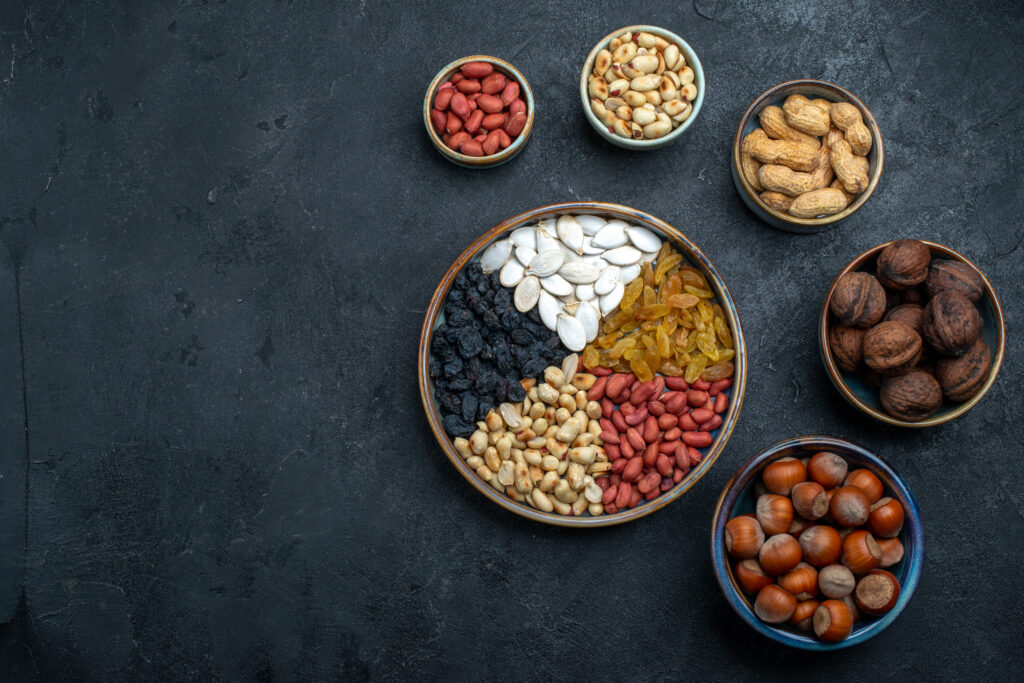 Nuts and Seeds: Packed with Protein and Healthy Fats
Nuts and Seeds: Packed with Protein and Healthy Fats
Almonds, Chia seeds, hemp seeds, flax seeds and pumpkin seeds are categorized as nuts and seeds.
- Almonds are a good source of vitamin E and dietary fiber.
- Chia Seeds are rich in Omega-3 fatty acids.
- Hemp seeds are a complete protein source for overall health improvement.
- Flax Seeds are high in fiber and Omega-3s.
- Pumpkin Seeds are nutrient-dense and high in proteins.
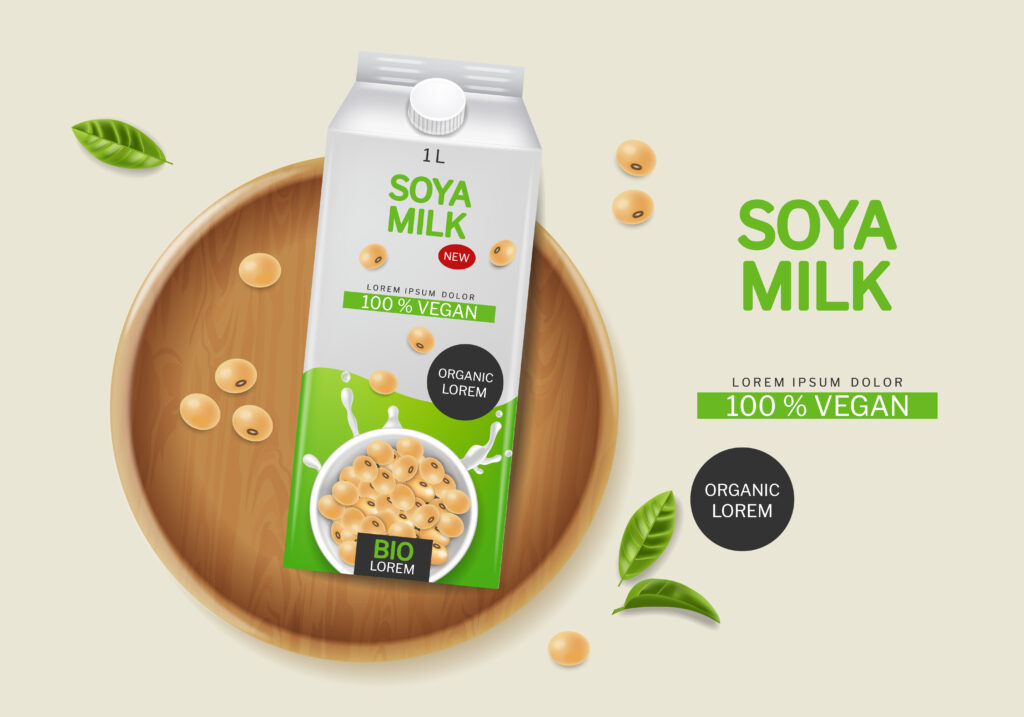 Soy Products: Versatile and High in Protein
Soy Products: Versatile and High in Protein - Tofu is considered the best source of protein as a plant-based soy product. It is a versatile source of proteins for vegans.
- Tempeh has fermented soybean products to flavor your meals.
- Edamame is a nutrient-dense snack to cherish your taste buds with beneficial effects on your overall health.
- Soy milk is your weakness as a vegetarian. You should not ignore this nutrient because it is a perfect dairy-free alternative.
- Soy Protein Isolate is an exceptional source of concentrated protein. Perfect for vegans.
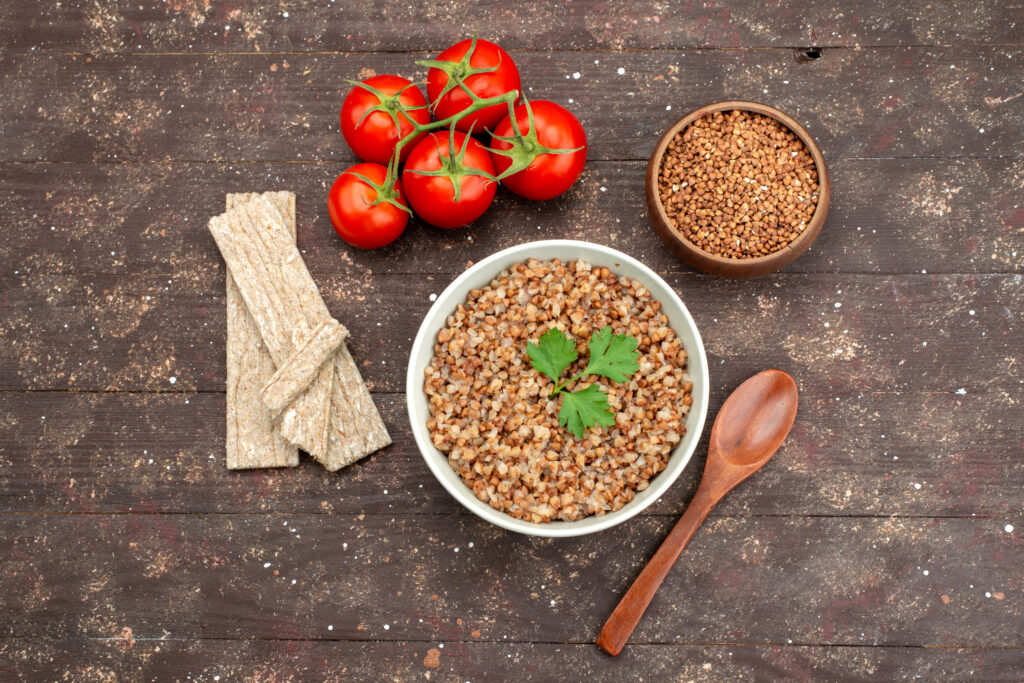 Quinoa: A Complete Protein Source
Quinoa: A Complete Protein Source
It is a versatile grain renowned for its nutritional health benefits and notably has a status as a complete protein source. Unlike other plant-based protein sources, quinoa contains all nine essential amino acids, making it the best choice for vegans.
- Nutritional Profile of Quinoa: It boasts an exceptional nutrition profile, offering a range of essential nutrients. It is abundant in dietary fiber and aids in digestion by promoting satiety. Quinoa is also packed with minerals such as magnesium and phosphorus, vital for various bodily functions. Its low glycemic index makes it the best option to maintain the blood sugar level.
- Health Benefits of Quinoa: It has numerous health benefits, including supporting digestion, weight management, promoting heart health and reducing risk factors of chronic diseases.
- Cooking Tips and Recipes: Its cooking is very simple. Rinse thoroughly to remove the bitterness before cooking. Mix quinoa with water with a 1:2 ratio and simmer for 15 minutes at least. It will give a fluffy texture to it. Now you may add it to your salad or soups. You also can try it by stir frying for a nutritional boost. It may also be used as a stir-fry with tofu and vinaigrette.
- Quinoa vs. Other Grains: Quinoa contains high fiber content and a complete protein profile as compared to most grains. Unlike wheat and rice, quinoa is gluten-free, making it suitable for gluten sensitive people. It is the best choice for a balanced diet.
 Incorporating Quinoa into Your Diet: It’s easy to incorporate quinoa into your diet as a substitute for rice or pasta. It would be a good complement to salads, soups and breakfast bowls. It can be used in burgers or stuffed peppers as a veggie base.
Incorporating Quinoa into Your Diet: It’s easy to incorporate quinoa into your diet as a substitute for rice or pasta. It would be a good complement to salads, soups and breakfast bowls. It can be used in burgers or stuffed peppers as a veggie base.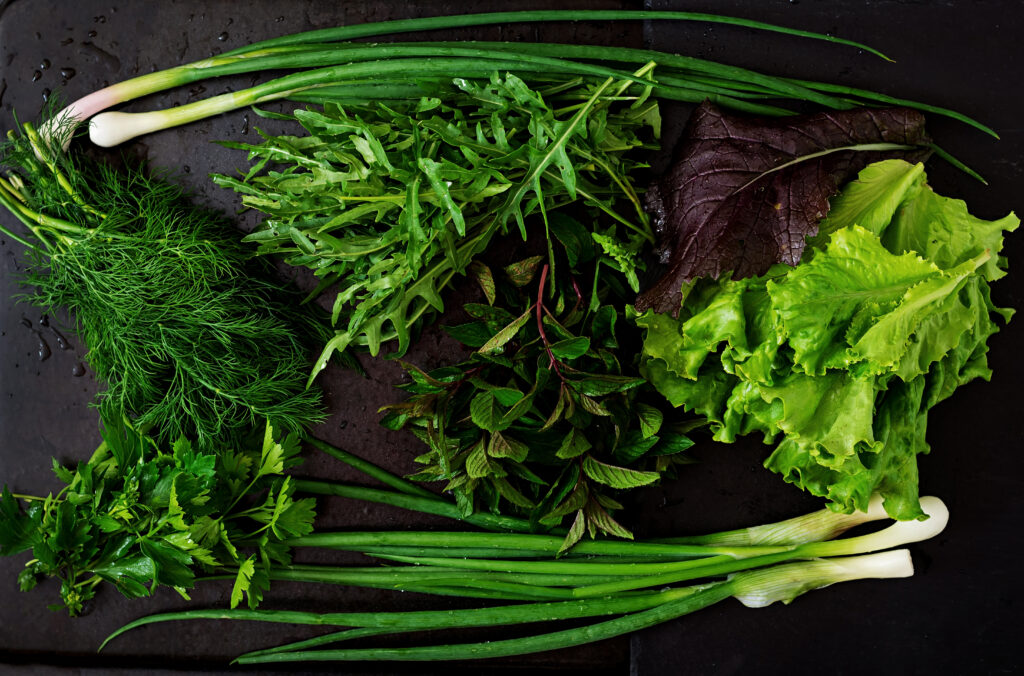 Leafy Greens: Surprising Protein Sources
Leafy Greens: Surprising Protein Sources - Spinach is a well-known super food packed with a variety of nutrients.
- Kale is a versatile leafy green rich in fiber and iron.
- Swiss Chard is a popular plant-based source of vitamins and minerals.
- Collard Greens are rich in protein and fiber and are a famous staple food in southern areas.
- Arugula has a peppery flavor and is packed with nutrients.
The Worst Plant-Based Protein Sources
Some plant-based protein sources are deficient in essential amino acids and lack protein content, making them less desirable choices. Such as potato chips, white rice and white bread. Thus avoid these options because they have minimal nutritional value and may not be adequate for proper muscle growth and overall health. Here are some plant-based protein sources that are not suitable for you.
Processed Plant-Based Foods: High in Added Sugars and Sodium:  Processed plant-based foods are often rich in added sugars and sodium, compromising their nutritional values. Certain vegan cookies, chips and pre-packaged meals are loaded with unhealthy additives. Their use can contribute to hypertension, weight gain and other health issues.
Processed plant-based foods are often rich in added sugars and sodium, compromising their nutritional values. Certain vegan cookies, chips and pre-packaged meals are loaded with unhealthy additives. Their use can contribute to hypertension, weight gain and other health issues.
Refined Grains: Low in Nutrients and Fiber: 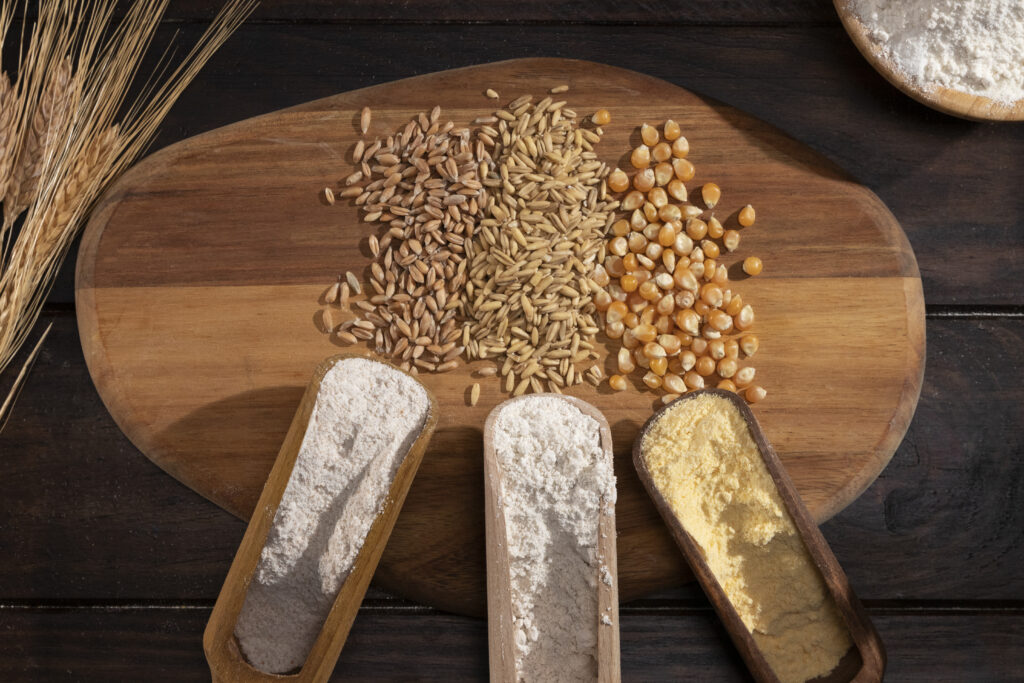 Refined grains undergo processing that devoid them from their outer bran or germ layer, removing essential nutrients. So avoid using white rice or pasta because these refined grains lead to nutrient deficiency and digestive issues due to low fiber content.
Refined grains undergo processing that devoid them from their outer bran or germ layer, removing essential nutrients. So avoid using white rice or pasta because these refined grains lead to nutrient deficiency and digestive issues due to low fiber content.
Plant-Based “Meats”: Often High in Saturated Fats and Sodium:  These “Meats” are marketed as alternatives to animal products but can be high in saturated fats and sodium that makes them potentially unhealthy foods.
These “Meats” are marketed as alternatives to animal products but can be high in saturated fats and sodium that makes them potentially unhealthy foods.
Sweetened Plant-Based Milk: High in Added Sugars: 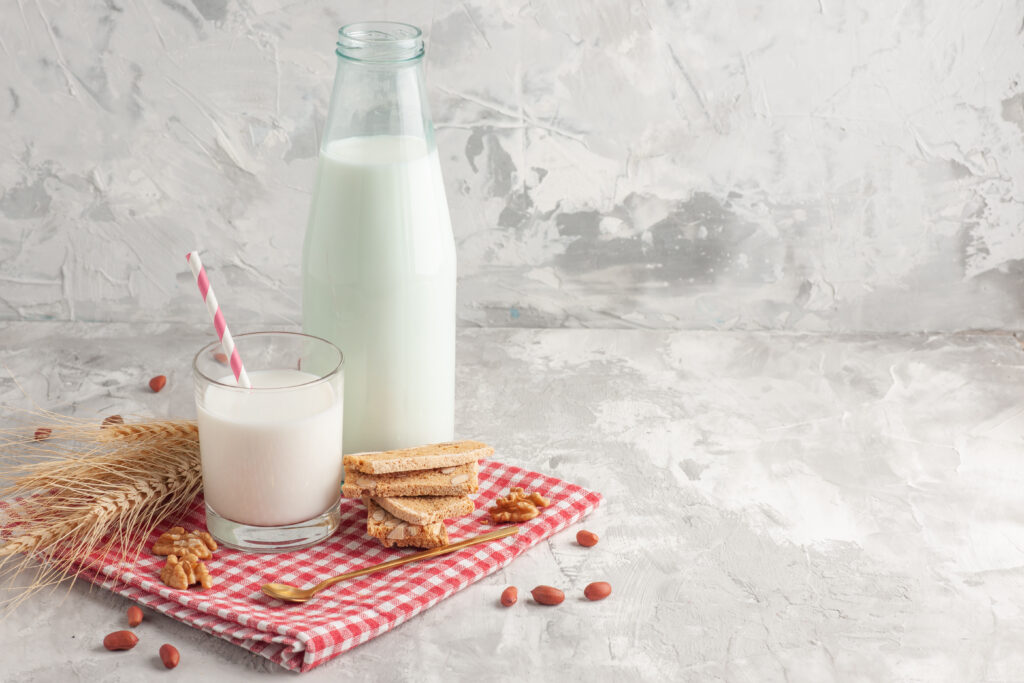 Flavored almond or oat milk is a type of sweetened plant-based milk, often containing high levels of added sugars, making it useless as plant-based protein. Although these are dairy-free products, excessive consumption of sweetened varieties can cause weight gain and other health issues. So try to choose unsweetened options or make plant-based milk at home to reduce sugar intake.
Flavored almond or oat milk is a type of sweetened plant-based milk, often containing high levels of added sugars, making it useless as plant-based protein. Although these are dairy-free products, excessive consumption of sweetened varieties can cause weight gain and other health issues. So try to choose unsweetened options or make plant-based milk at home to reduce sugar intake.
Conclusion
Plant-based proteins are inexpensive and rich in essential nutrients and are found in a delicious palette of flavors so you can prefer any combination of all of the above- mentioned options.
They have numerous health benefits including lower saturated fat content, higher minerals, vitamins and fiber content.
However, be mindful of processed options with high sugars. Opt for minimally processed plant-based resources to ensure a nutritious and sustainable dietary choice.

